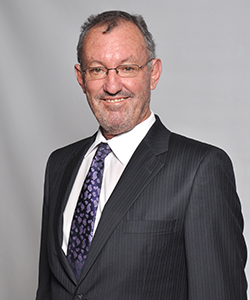Latest News Archive
Please select Category, Year, and then Month to display items
12 October 2020
|
Story Arina Engelbrecht
|
Photo Supplied
 Arina Engelbrecht from Organisational Development and Employee Well-being believes physical activity has a number of benefits for one’s health, including stress relief.
Arina Engelbrecht from Organisational Development and Employee Well-being believes physical activity has a number of benefits for one’s health, including stress relief.
Being physically active plays a big role in preventing the development of mental-health problems and in improving the quality of life of people experiencing mental-health problems.
Treatment for depression
Physical activity can be an alternative treatment for depression. It can be used as a stand-alone treatment or in combination with medication and/or psychological therapy. It promotes all kinds of changes in the brain, including neural growth, reduced inflammation, and new activity patterns are formed that promote feelings of calm and well-being. It releases endorphins – powerful chemicals in the brain that energise your spirit and make you feel good.
Physical activity can be very effective in relieving stress. Research in adults has found that physically active individuals tend to have lower stress levels compared to individuals who are less active. It also leads to improved sleep. When a person sleeps better and feels more rested, overall quality of life improves. They cope better with daily life stressors.
Reduce Alzheimer's risk
Regular physical activity can reduce your risk of developing Alzheimer's disease by up to 50%. It can also slow down further deterioration in those who have already started to develop cognitive problems. It stimulates the brain’s ability to maintain old connections as well as to make new ones.
A study asked people to rate their mood immediately after periods of physical activity (e.g. going for a walk/run, cycling, doing housework) and periods of inactivity (e.g. reading a book or watching television). Researchers found that participants felt more content, more awake, and calmer after being physically active compared to after periods of inactivity.
In conclusion, people who are physically active feel a sense of well-being, feel more energetic throughout the day, sleep better at night, have sharper memories, and feel more relaxed and positive about themselves and their lives.
“Being physically active not only changes your body, it changes your mind,
attitude, and your mood.” – Arina Engelbrecht
Chairperson of UFS Council appointed as Judge of the Supreme Court of Appeal
2016-06-17
 Judge Ian van der Merwe
Judge Ian van der Merwe
Judge Ian van der Merwe, Chairperson of the UFS Council, has been appointed as Judge of the Supreme Court of Appeal as from 1 July 2016. His appointment, together with that of Judge Connie Mocumie, was announced by the office of President Jacob Zuma last week.
Both judges will act in the Supreme Court of Appeal this month until their appointments come into effect next month.
“The university is excited and proud that its Chairperson of Council has achieved such great heights in the legal profession. Judge Van der Merwe brings enormous calm, deliberation and wisdom to the governance of the institution, and the UFS regards itself as privileged to have a man of his stature in the leadership of Council,” said the Vice-Chancellor and Rector, Prof Jonathan Jansen.
Judge Van der Merwe is an alumnus of the UFS and was elected as Chairperson of the Council on 20 November 2009, and re-elected on 16 November 2012. He was re-elected to serve for a third term on 11 September 2015.
Released by:
Lacea Loader (Director: Communication and Brand Management)
Telephone: +27(0)51 401 2584 | +27(0)83 645 2454
Email: news@ufs.ac.za | loaderl@ufs.ac.za
Fax: +27(0)51 444 6393